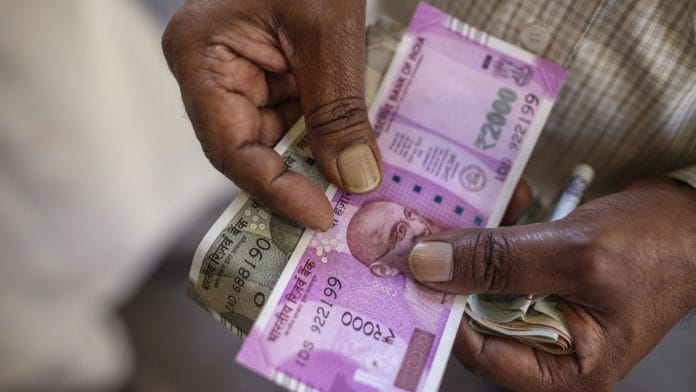New Delhi: The compensation cess collected in the current fiscal year is less than one fifth of the total amount required to be paid as Goods and Services Tax (GST) compensation to the states, the finance ministry informed Parliament Monday.
In the April-August period, the total compensation cess collected was Rs 28,163 crore.
But at the same time, the shortfall in GST collections — for which states have to be compensated — was at Rs 1.51 lakh crore in the April-July period alone, according to data provided by the finance ministry in response to multiple questions on GST in the Lok Sabha.
“GST compensation cess collected in current FY 2020-21 is not sufficient to release the admissible GST compensation for period April-July 2020,” the finance ministry said in one of the replies.
It attributed the fall in GST revenues to contraction in nominal GDP, nationwide lockdown to counter Covid-19 and extension of GST return filing timelines.
Maharashtra, Karnataka, Uttar Pradesh, Gujarat and Tamil Nadu have reported the largest shortfall in GST collections in the April-July period.
The GST compensation due for Maharashtra was Rs 22,485 crore, followed by Karnataka at Rs 13,763 crore, Uttar Pradesh at Rs 11,742 crore, Gujarat at Rs 11,563 crore and Tamil Nadu at Rs 11,269 crore. West Bengal, Kerala, Delhi and Punjab are some of the other states with a revenue shortfall in the range of Rs 6,500-7,800 crore.
Also read: Why Centre and not states should borrow to resolve GST compensation impasse
Centre-states spar over GST dues
Non-payment of GST compensation has been a major bone of contention for the past few months with many opposition-ruled states calling the non-payment of compensation an example of coercive federalism. Many had also written to Prime Minister Narendra Modi seeking the compensation terming it their constitutional right.
They had proposed that the central government should borrow to meet the compensation shortfall.
The central government had, however, rejected this option. It had, instead, proposed two options — both of which entailed borrowing by states.
In the first, the states were given the option of borrowing Rs 97,000 crore to meet the revenue shortfall on account of a transition to GST, but without taking into account the loss of revenues on account of the pandemic.
In this case, both the principal and the interest amount would have been repaid from the future collections of the compensation cess.
In the second, states could borrow Rs 2.35 lakh crore to meet the entire compensation amount. However, in this case, the states would have to bear the interest repayment burden with only the principal amount being repaid out of the cess.
Some states agreed, some didn’t
While around 10 non-BJP ruled states and union territories, including Tamil Nadu, West Bengal, Kerala, Punjab, Delhi and Chhattisgarh, have rejected both the options given by the Centre, BJP-ruled states like Karnataka, Gujarat and Uttar Pradesh have opted to go for the first option.
The Shiv Sena-NCP-Congress ruled Maharashtra has not yet divulged its stance.
Also read: Centre vs states GST row doesn’t matter. What matters is reviving economy & a borrowing plan






